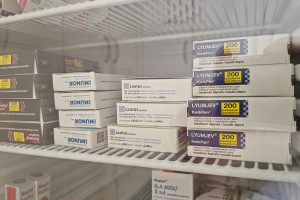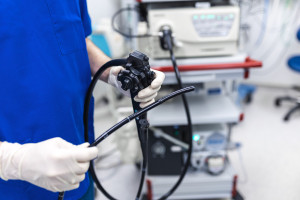Will the new law crush the market for miracle therapies? This has never happened in Poland before

- The "Lex Charlatan" project aims to regulate pseudo-medical activities that have been operating without supervision for years and posed a threat to patients' health.
- The amendment provides for a ban on advertising therapies without a scientific basis and the possibility of imposing sanctions on persons pretending to be medical service providers.
- The Act distinguishes three types of activities: legal health services, medical-related activities and pseudo-medical activities that are to be subject to control.
- New regulations are designed to protect patients from manipulation and dangerous decisions made based on false promises of "treatment"
The draft amendment to the Act on Patient Rights and the Patient Rights Ombudsman, referred to in public debate as "lex quack", is the legislator's response to a phenomenon that has operated in Poland for years outside of real legal supervision. It concerns broadly understood pseudo-medical activity - services imitating health benefits, often offered by people without medical education, but with great marketing effectiveness.
What are the basic assumptions of the draft law?The amendment has the ambition to regulate this sphere, provide state institutions with real tools to control and sanction unfair practices and, above all, better protect patients.
In practice, this means the introduction of completely new definitions, a change in the systemic position of the Patients' Rights Ombudsman, a ban on advertising pseudo-medical services and the possibility of issuing administrative decisions against entities that have so far remained outside the healthcare system.
What exactly will change compared to the current regulations?For many years, the Polish state had no real tools to intervene in the activities of so-called healers, bioenergy therapists, iridologists, hypnotherapists or other people who, in a more or less veiled way, offered something that their clients perceived as treatment. In particular, the problem concerned situations in which sick people gave up oncological, psychiatric or neurological therapy in favor of activities that had no scientific basis .
The consequences of such decisions were often dramatic - loss of health, deterioration of mental state, and sometimes even death. Paradoxically, dishonest service providers were not held responsible for this, and patients had no one to turn to for help. In this context, the amendment is an attempt to break this long-standing helplessness of the legal system in the face of phenomena that threaten not only the pocketbook, but also the lives of citizens.
The essence of the proposed changes is a clear demarcation of three spheres of activity: health services, which are subject to the Act on Medical Activity and can only be performed by medical entities, paramedical activities, which include, for example, massages, health coaching, functional dietetics and other activities that are not of a treatment nature, and pseudo-medical activities - i.e. those that simulate treatment, mislead as to the effectiveness or scientific justification of the methods offered and at the same time are not subject to any supervision. It is this third category that is to be covered by the new regulations.
The amendment assumes that pseudo-medical activities will not be advertised in a way that suggests therapeutic or curative effectiveness.
In other words, people offering such services will not be able to publicly declare that they "cure cancer", "treat depression", "treat infertility" or "replace oncological treatment" . So far, this has been common, and advertising messages - especially on social media - have operated with emotions, miraculous stories of "healing", alleged scientific studies and celebrity opinions.
The ban on advertising pseudo-medical services in this form is intended to cut the channels of manipulation and protect patients from decisions based on false premises.
Copyrighted material - reprint rules are specified in the regulations .
rynekzdrowia











